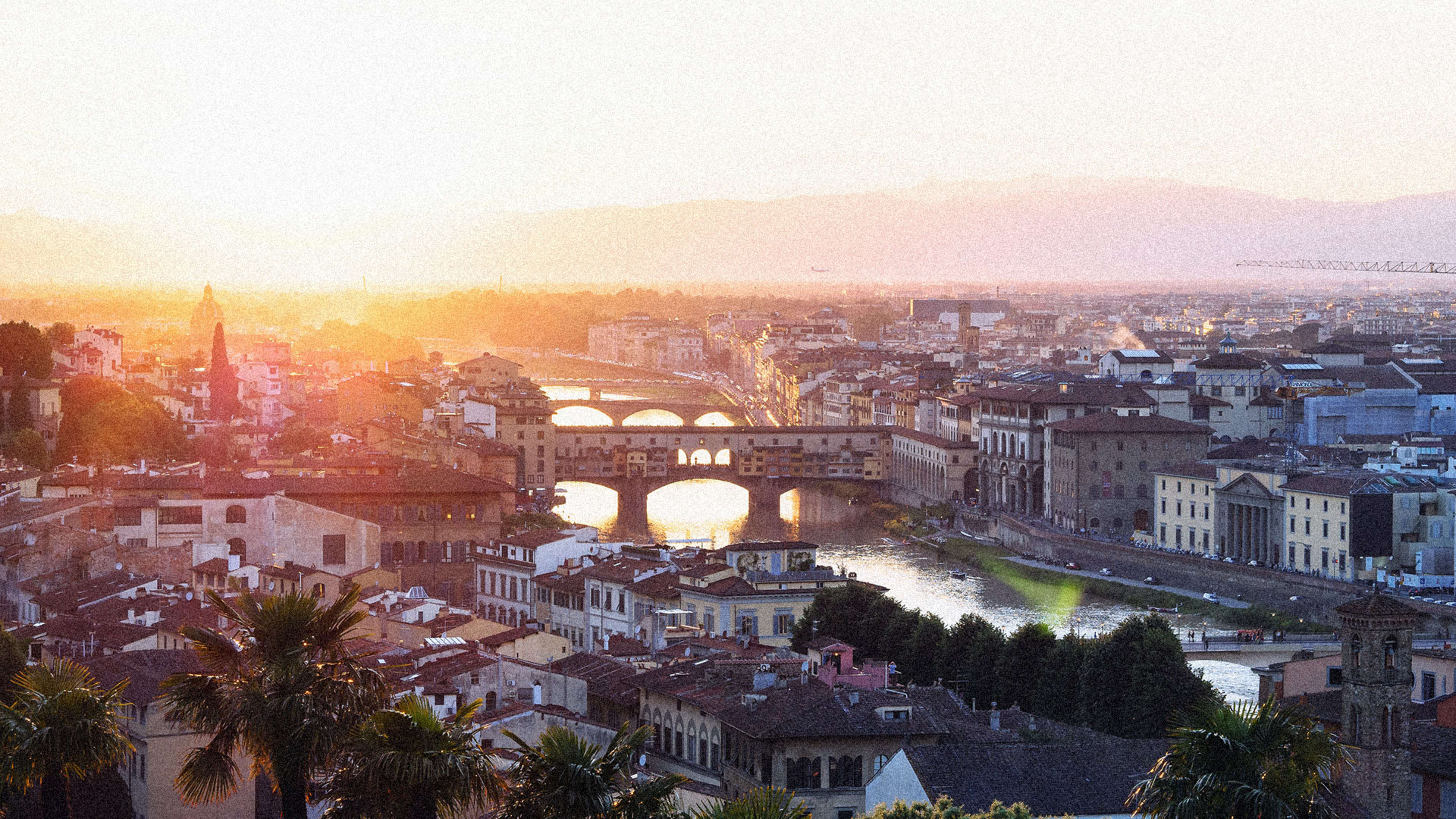Getting away on vacation can help you feel refreshed and rejuvenated, but it’s also good for your brain. The change of scenery can spark new ideas and generate innovative ways to look at an old problem. It’s called the novelty effect, and research has found that it boosts creativity. So why limit the experience to vacation?
Earlier this summer, two design studios—Andstudio from Vilnius, Lithuania, and Muttnik from Florence, Italy—swapped offices for two weeks to find inspiration in a new environment.
“We’ve been thinking about leaving our hometown to experience another design culture for quite some time,” says Augustinas Paukštė, cofounder of Andstudio. “Although we’ve been visiting conferences and organizing work trips to other countries, at some point, it wasn’t enough anymore.”
Working out the details
Paukštė reached out to Silvia Agozzino, cofounder of Muttnik, and the two companies decided to try it. The first step was tackling the logistics.
Andstudio and Muttnik are more than 1,200 miles apart. Each company helped the other arrange local housing. Andstudio prepared their office for their guests by stocking supplies, coffee, and a list of tips for living in Vilnius.
“We greeted Muttnik at the airport, showed them around the city and the office,” says Paukštė. “We also organized meetings with various local creatives to help our Italian friends expand their professional network.”
The location and the general feel of the studio play a huge role in shaping the whole exchange experience, says Paukštė. “In this case, the environments of both studios couldn’t be more different,” he says. “Our studio is located on a riverbank in a forest just outside the city center. Muttnik’s studio is the opposite: right in the bustling center of Florence. Forest sounds were replaced by touristy streets full of chatter and buzzing indoor fans fighting the sizzling heat.”
Settling in
Even though the locations were different, the adaptation was swift. Paukštė says he and his team originally felt like the tourists. “But after a couple of days, sitting on our Italian bicycles, we started separating ourselves from the tourists and almost feeling like we’ve been living there for years,” he says.
Agozzino says she and her team immediately got involved in the city dynamics of Vilnius. “We found a supercontemporary city, turned towards the future,” she says. “Some of the things we appreciated the most were the relationship with nature, the sunlight until 10.30 p.m., and the calmness. We got caught [drinking beers] by two policewomen on horses [during a] Saturday lunchtime barbecue in a park, because we didn’t know it was illegal to drink alcohol in public spaces.”
The results
Two weeks in a new place had an impact on the work both teams did during the swap. “In a sense, the final result of any project is directly affected by the environment around the working process,” says Paukštė. “All the living experiences directly affect us both on personal and creative levels. Weeks there filled us up with motivation for a year in advance.”
“Being decontextualized makes you more aware of what you are and what you are doing,” adds Agozzino. “It is a time you spend for learning as much as you can in another country while you do your regular job. A period physically far away from the [normal] daily dynamics and places gave us some energy needed to go back and do our best.”
Both Paukštė and Agozzino would recommend office swapping. “Every organization would gain whatever they wish to learn from an experience like this,” says Paukštė. “Some can work on forging new business contacts and come back home with an extensive list of new leads, while others can concentrate on strengthening their team spirit.”
In fact, Andstudio plans to make the office swap a yearly tradition, and Paukštė created a community of “swappers” at studio.exchange. “Surprisingly, everything went smoother than expected,” says Paukštė. “After the time in Florence, we can easily claim this was the best team-building experience we ever had.”
However, Paukštė says he has one regret: “During our next exchange, we would like to do something for the local community,” he says. “In the future, we plan to use some of the time spent abroad to work on a local nonprofit project and leave something behind us.”
Recognize your brand’s excellence by applying to this year’s Brands That Matter Awards before the early-rate deadline, May 3.
